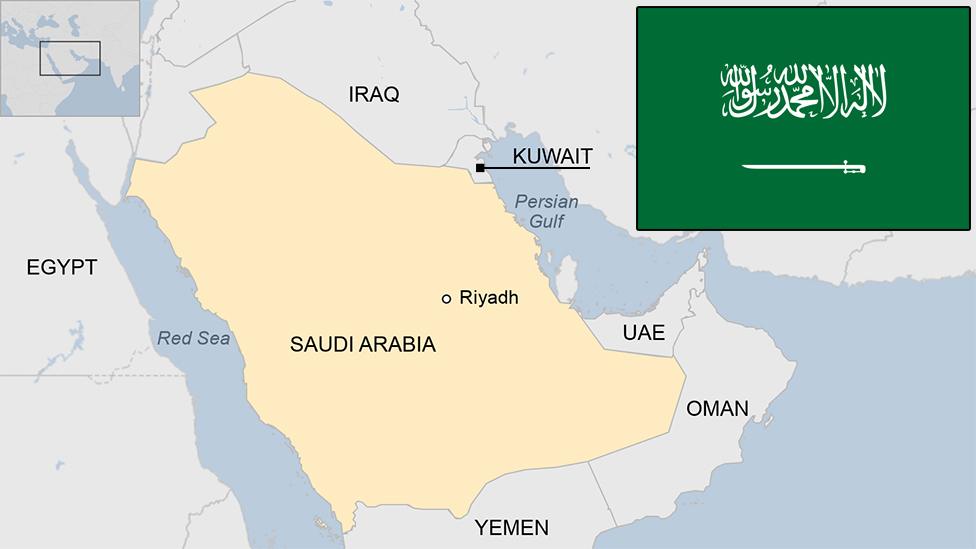Saudis 'to review' flogging of blogger Raif Badawi
- Published
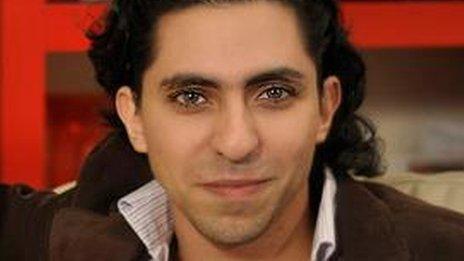
Raif Badawi received 50 lashes last Friday
The case of a Saudi blogger sentenced to 1,000 lashes has been referred to the Supreme Court by the king's office, the BBC has learned.
Blogger Raif Badawi's wife said the referral, made before he was flogged 50 times last Friday, gave him hope that officials would end his punishment.
A second round of lashings was postponed for medical reasons.
The punishment of Badawi, who was also fined and sentenced to 10 years in prison, caused international outcry.
Badawi established Liberal Saudi Network, a now-closed online forum that sought to encourage debate on religious and political matters in Saudi Arabia in 2008.
Dr Elham Manea, activist and family spokeswoman: "It is very important to mention that usually the Supreme Court can or would suggest a renewal of the trial"
In 2012, he was arrested in Jeddah and charged with "insulting Islam through electronic channels" and "going beyond the realm of obedience".
In 2013 he was cleared of apostasy, which could have carried a death sentence.
'Macabre and outrageous'
Saudi Arabia enforces a strict version of Islamic law and does not tolerate political dissent. It has some of the highest social media usage rates in the region, and has cracked down on domestic online criticism, imposing harsh punishments.
The sentence was widely condemned by human rights groups.

Becky Kelly, BBC News
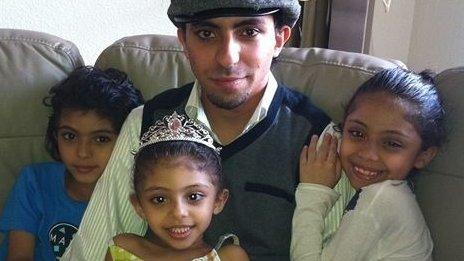
Raif Badawi has three young children
The thought of 10 years without her husband was the reality facing Ensaf Haider. The children are young, and haven't see their father for more than two years already - the time he has been held in jail.
Now she sees a glimmer of hope. With Badawi's case now with the Supreme Court, it means there is a chance of an appeal.
In the past few days Ensaf Haider told me in phone conversations and messages how Raif struggles being parted from her and his three children. "I think he finds it hard, too hard to bear sometimes," she said.
His wife said she knew that he wanted to appear strong during his flogging last week and not show any sign of pain. "People in the square were shouting 'Allahu Akbar, Allahu Akbar' (God is great) - he never wanted to show any suffering," she said.
"Now his case has been passed by the royal office to the Supreme Court, he hopes something will happen soon, perhaps next week."

The first round of flogging was carried out outside a mosque in Jeddah last Friday as a crowd of onlookers watched.
A number of foreign governments, including the US, Canada, Germany and Norway, had criticised the punishment.
Amnesty International said officials had delayed the second round of flogging because Badawi's wounds had not yet healed.
"Not only does this postponement... expose the utter brutality of this punishment, it underlines its outrageous inhumanity," said Amnesty's deputy director for the Middle East and Africa, Said Boumedouha.
"The notion that Raif Badawi must be allowed to heal so that he can suffer this cruel punishment again and again is macabre and outrageous."
Reporters Without Borders urged Saudi Arabia "to abandon this barbaric punishment", saying it remained "very concerned" about Badawi's health.
Badawi's wife says she moved to Canada in 2012 with their three children following an attempt on her husband's life.
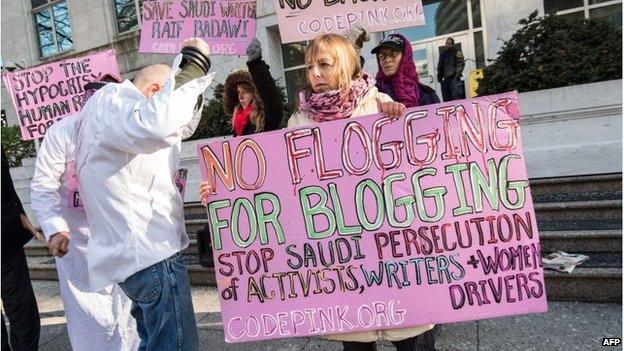
The flogging has triggered protests outside Saudi embassies
- Published16 January 2015
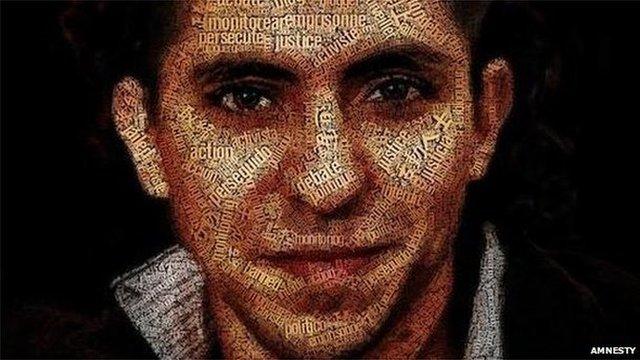
- Published9 January 2015
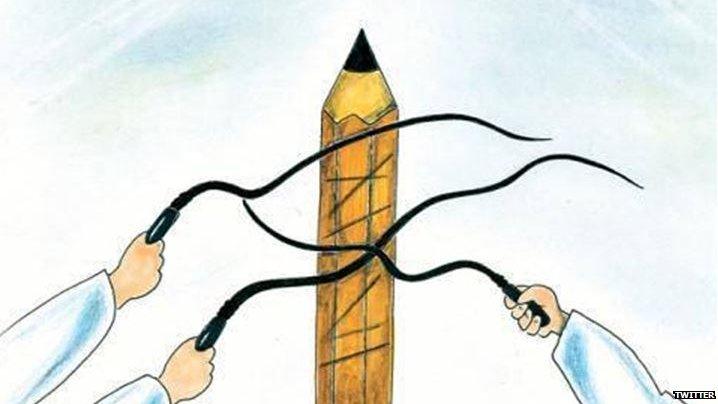
- Published16 January 2015
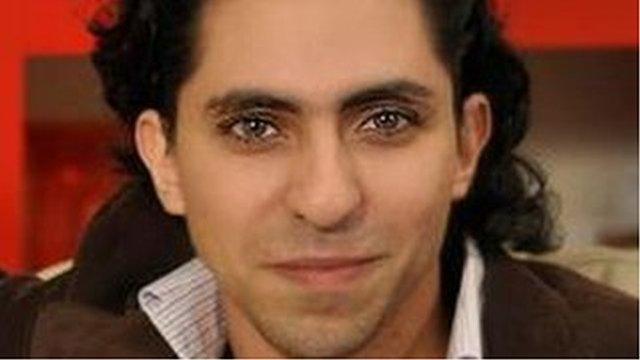
- Published6 December 2012

- Published29 August 2023
